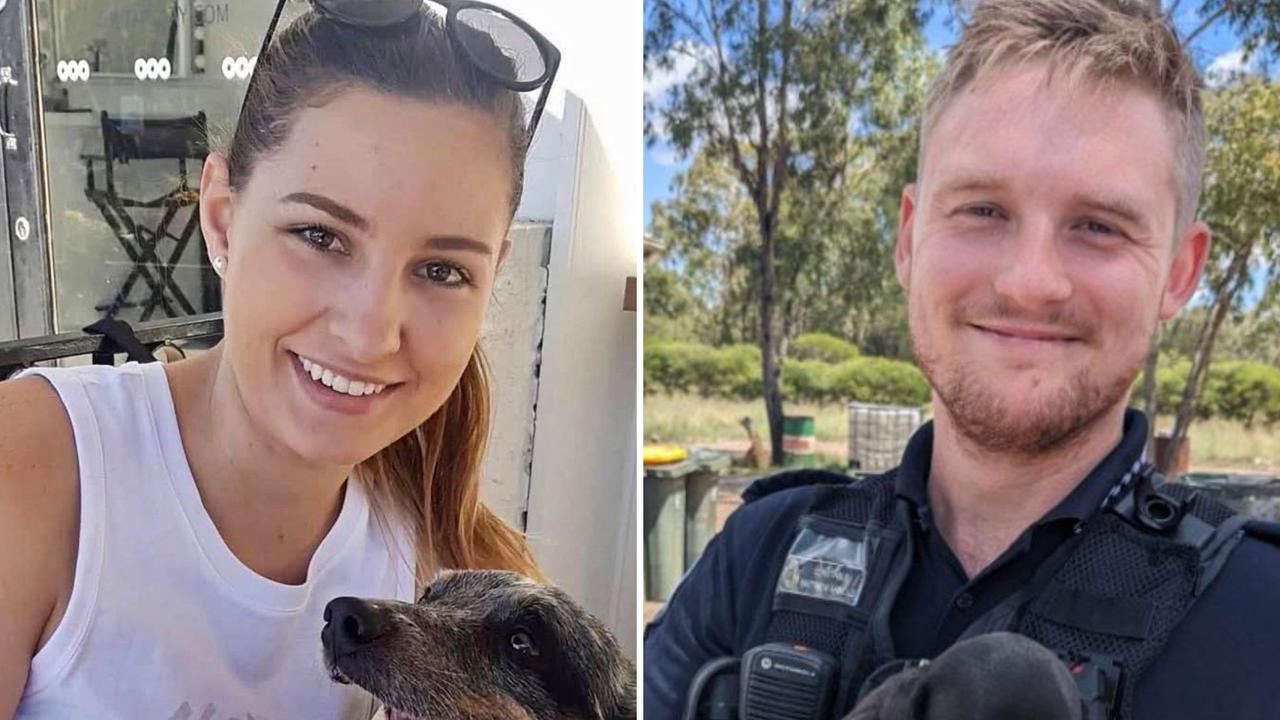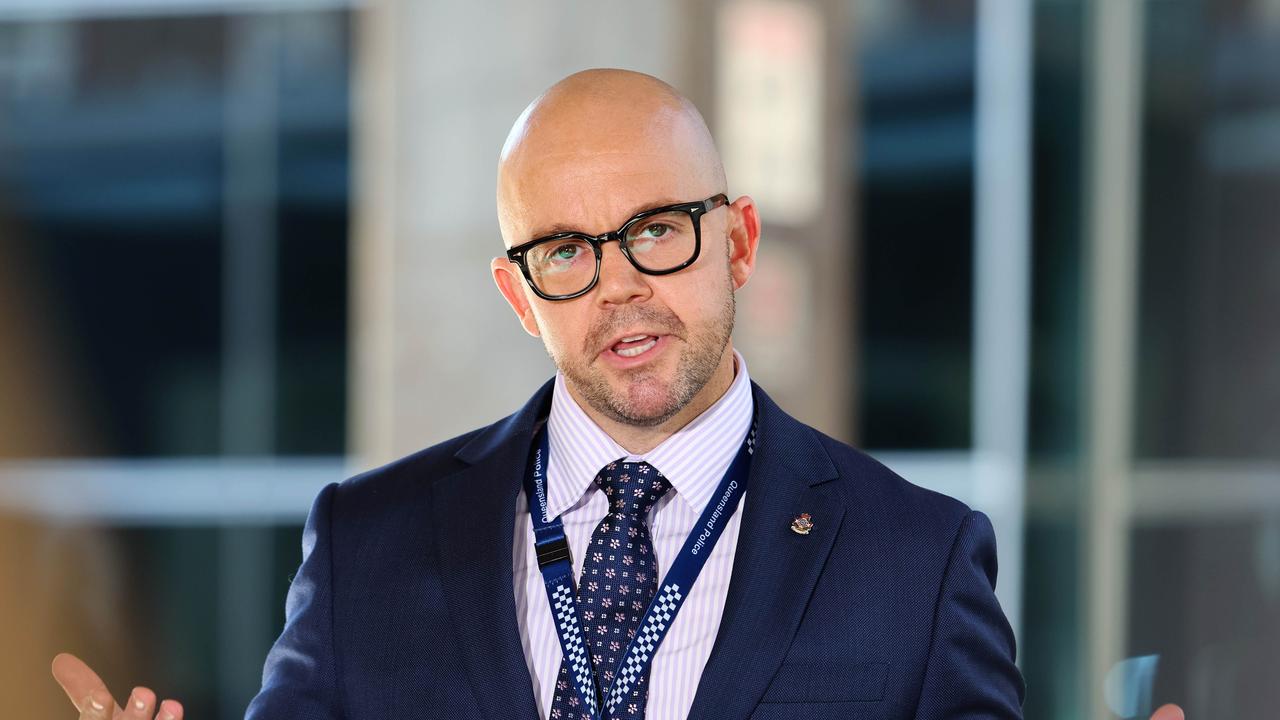‘Negligent’: Police communication black spots put lives at risk
The families of murdered police are demanding action after the Police Federation of Australia revealed critical communication black spots due to a “negligent” government.
Police & Courts
Don't miss out on the headlines from Police & Courts. Followed categories will be added to My News.
First responders have not been allocated proper communication systems by a “negligent” federal government, the Police Federation of Australia (PFA) says – as the families of murdered police call for action now.
It comes after revelations aired in the Wieambilla massacre inquest about communication issues on December 12, 2022, where Constables Rachel McCrow and Matthew Arnold were murdered by Gareth, Nathaniel and Stacey Train.
The inquest heard the officers were on the wrong channel while trying to call for help and patchy service restricted responding police, even putting more officers in danger.
Constable Arnold’s mother, Sue Arnold, said the time for excuses was over and they wanted real action now.

“Better communications must be readily available to all police officers. Trying to find the best radio channel should not be a decision that officers need to make … or having to put up with communication that we have heard is ‘patchy at best’,” Ms Arnold said.
PFA chief executive Scott Weber said black spots remained a “huge” issue across all jurisdictions.
Mr Weber said the PFA had called for the introduction of a national PSMB capability (spectrum) for more than 15 years.
“Successive governments have been passing the buck in regards to getting police and first responders adequate spectrum to keep the community safe while innocent people and first responders are dying,” Mr Weber said.
“We live in an age with communication and data and it is negligent that the federal government hasn’t allocated first responders proper communication systems.”
Speaking about the recent inquest, Mr Weber said: “We don’t want recommendations, we want actions.
“We have the solution available to us, it’s just the federal government allocating spectrum to emergency services so they can use it and also giving adequate funding to upgrade regional areas, black spots in communities so they have the same quality of life and the same safety as someone who lives in the city,” he said.
“You can’t have everyone on the same channel otherwise it would be a total nightmare, especially in a crisis it just wouldn’t work, everyone would be talking over each other.
“We want police to be a priority on any spectrum … this is about universally keeping Australia safe … it is about natural disasters, crime, terrorism … to me it seems like a lay down affair, a logical scenario.”
Queensland Police Union president Shane Prior said the workforce was “scarred” following the massacre.

“The details of that inquest have been harrowing and I don’t think there is a person in this country that is not affected by what they have heard,” Mr Prior said.
“State and federal government really need to start acting in the interest of protecting our police members. It is not OK that a police officer needs to rely on a piece of equipment that is faulty in a particular area.
“And I call on all those areas, all those black spots, to be addressed so our people are not put in any danger.”
The Sunday Mail asked Queensland Police for more details about radio black spots but they did not respond by deadline.



